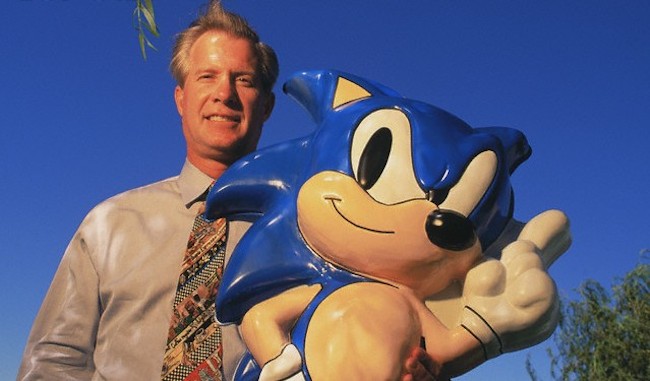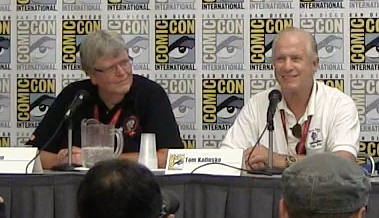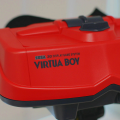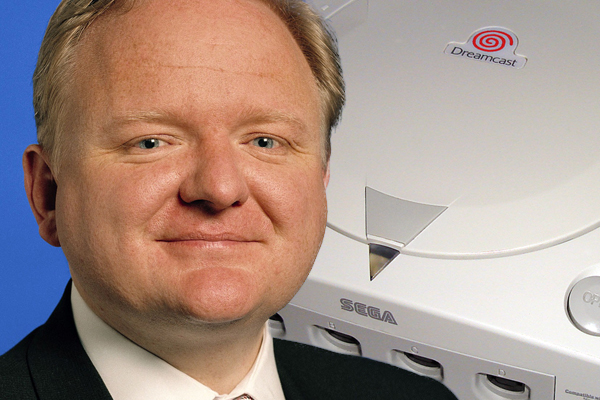
Tom Kalinske oversaw SEGA of America in the early 90s during the Genesis era, arguably the company’s most successful time in the console space. Despite their incredible Western success under his leadership, his relations with SEGA of Japan were sometimes strained, most notably with regard to the launch of the Saturn. He departed the company in 1996.
Speaking to Gamesindustry.biz at the DICE Summit, shortly after the recently-announced downsizing and relocating of SEGA’s American headquarters, he does not mince words when discussing his former company.
“[Their departure from hardware] was not inevitable,” Kalinske said. “It could have been avoided if they had made the right decisions going back literally 20 years ago. But they seem to have made the wrong decisions for 20 years.”
He cites the SEGA-Sony system, the partnership he’d almost made happen before SEGA of Japan’s board of directors squashed the idea, as a main factor in his ultimate departure from the company.
“We go to Sega and the board turned it down, which I thought was the stupidest decision ever made in the history of business.”
“[Sony Interactive CEO] Olaf Olafsson, [Sony Corporation of America president and CEO] Mickey Schulhof and I had agreed we were going to do one platform, share the development cost of it, share the probable loss for a couple years on it, but each benefit from the software we could bring to that platform,” he said. “Of course, in those days, we were much better at software than they were, so I saw this as a huge win. We went to Sony and they agreed, ‘Great idea.’ Whether we called it Sega-Sony or Sony-Sega, who cared? We go to Sega and the board turned it down, which I thought was the stupidest decision ever made in the history of business. And from that moment on, I didn’t feel they were capable of making the correct decisions in Japan any longer.”
Despite Kalinske’s strong words, he clarifies that he doesn’t wish SEGA ill will, and seems hopeful that they’ll ultimately stick around.
“You have to really make a lot of mistakes to kill a strong brand,” he concluded. “I do think some great brands obviously have been destroyed, Atari being one of them. Why didn’t that survive? I think there’s a lot of bad decision making involved in killing brands like that. I hope Sega isn’t the same thing.”
“I think there’s a lot of bad decision making involved in killing brands like that. I hope Sega isn’t the same thing.”
The full story, which includes more about SEGA along with comments from Kalinske on Nintendo’s current rivalry with the mobile industry, can be found here.






So let’s think a What if situation here… what if Sega Sony happened? what next? would they make a new deal or would they end separate ways again? the solid truth is that both Sega and Nintendo underestimated the PSX, and Sony literally eat them.
The fact is Sega continues to make bad decision, is seems they want to travel the path of irrelevance at all costs…
You do realize Sega is growing larger than it ever was in the past, right? It’s really, REALLY hard to say a company is becoming irrelevant when they’re the largest arcade machine manufacuter around, not to mention the movie and TV show plans they announced recently and the aquisition of Relic and Atlus.
Come on dude, this information ought to be obvious if you follow any S-centric fansite.
Atticus, Sega hasn’t grown larger than they’ve ever been in the past based on their own success and decision making processes, they’ve grown larger only because the VideoGame industry as a whole has grown larger, therefore smaller companies back then are bigger now relative to the time, but relative to the industries size as a whole, they are still small in comparison to others, Sega simply isn’t big news like they used to be, they’re still around sure but it’s probably safe to say that it’s very unlikely they’ll ever have the same level of power that they did in 1992, the industry back then was obviously a bit smaller then than it is today, but Sega was massive back then and a huge influence compared to todays bigger industry, they had the power to influence the whole industry in the direction they wanted, today, they don’t have anywhere near that power at all.
Making an acquisition here and there shows Sega is doing fine surviving and getting along with the industry but they aren’t thriving like they once were in the good days.
Yea in totally different categories dude…yea there big in arcade…but thats mostly in japan…as its way smaller here now….sega is a great company…but in reality..they always made bad decisions…in better words…they made decisions that were way AHEAD of its time..
To narrow it down, I suppose we could say that Sega is merely following the industry, as compared to before – where they were actually shaping and controlling the industry, when they were a major player, with their own hardware division ect.
I see the problem here, it’s that one logical fallacy that keeps appearing in game discussion. The industry is not getting larger at all–quite the opposite actually, and you can see it with the notices of countless developers closing their doors popping up in the news feed. The mass concept of “video games” is diminishing at a rapid pace, and about all any modern consumer who isn’t already an enthusiast thinks of when they hear the term is Angry Birds, Madden, Call of Duty, and the Mario series if they’re young enough. Nobody is “Big News” in the game industry outside of a very narrow niche of franchises anymore.
To address what you said about SEGA not growing larger due to their own decision making process…I’ll be honest, that’s just stupid. Do you think acquisitions just fall in to a company’s lap like happy little accidents?